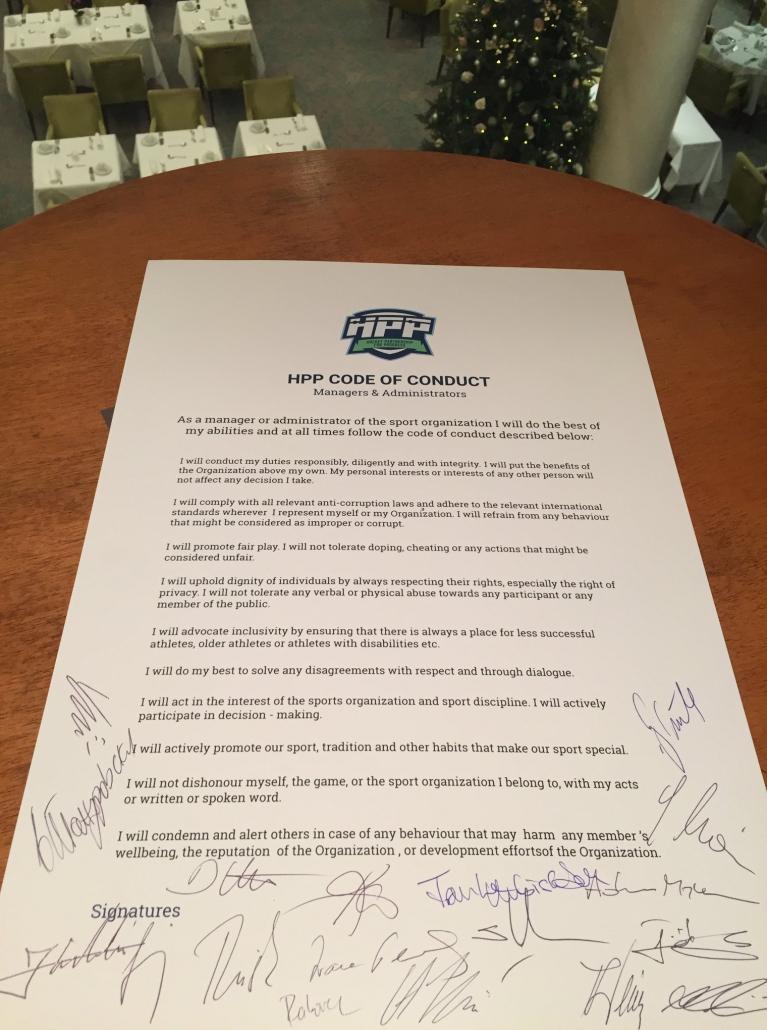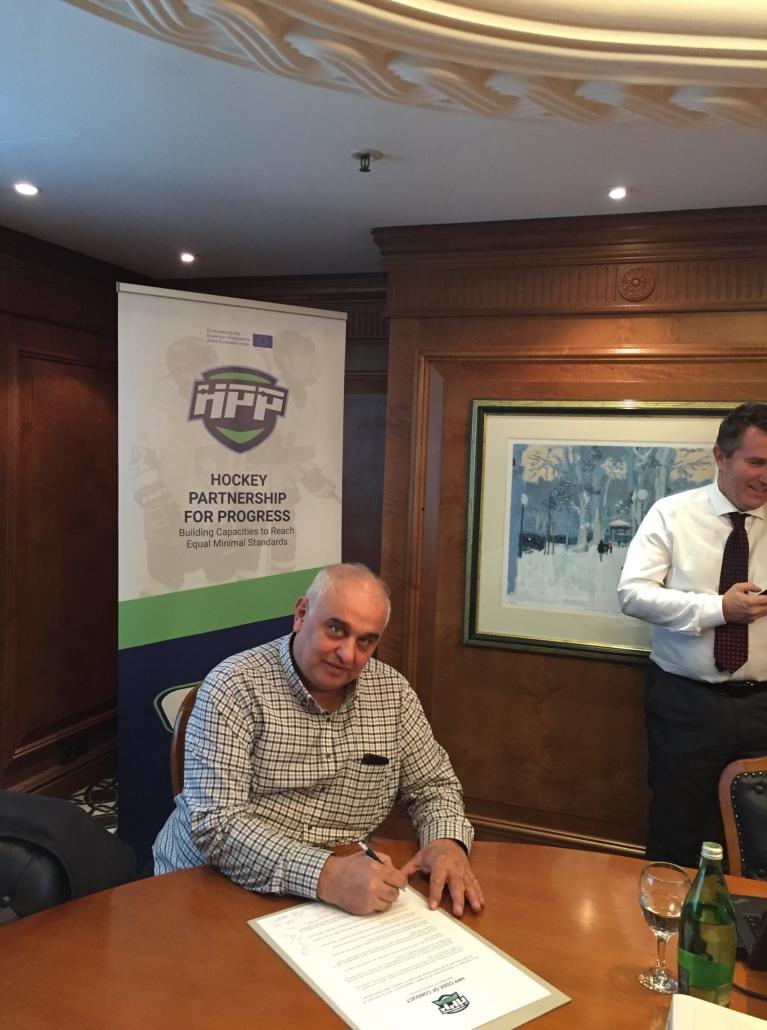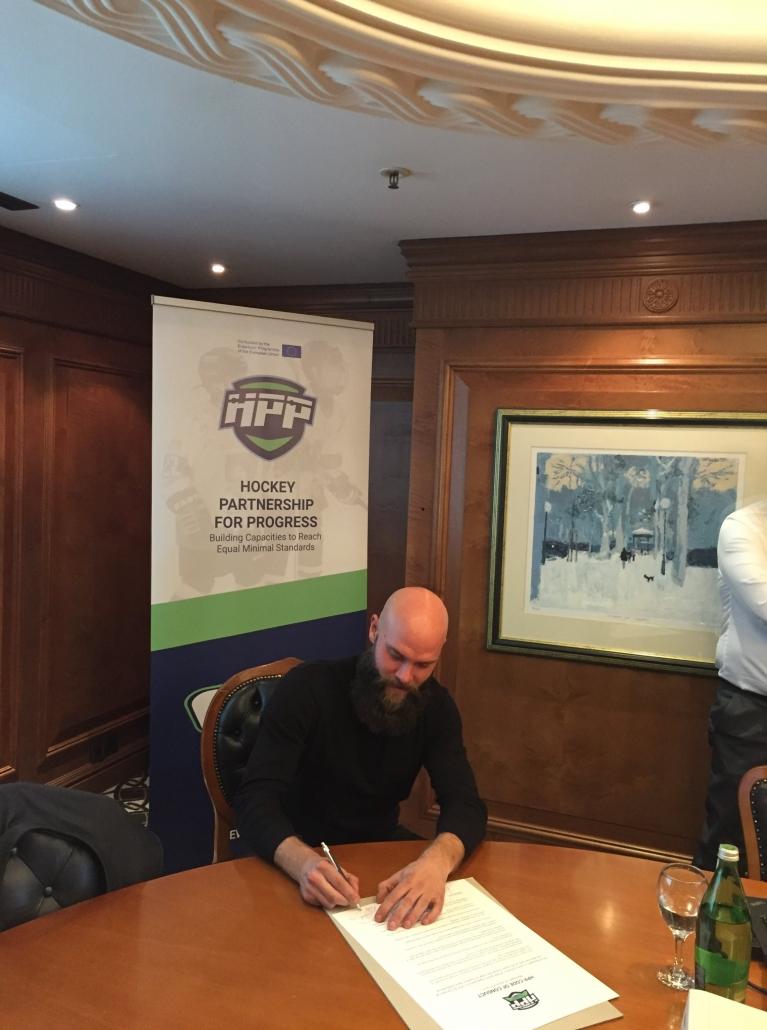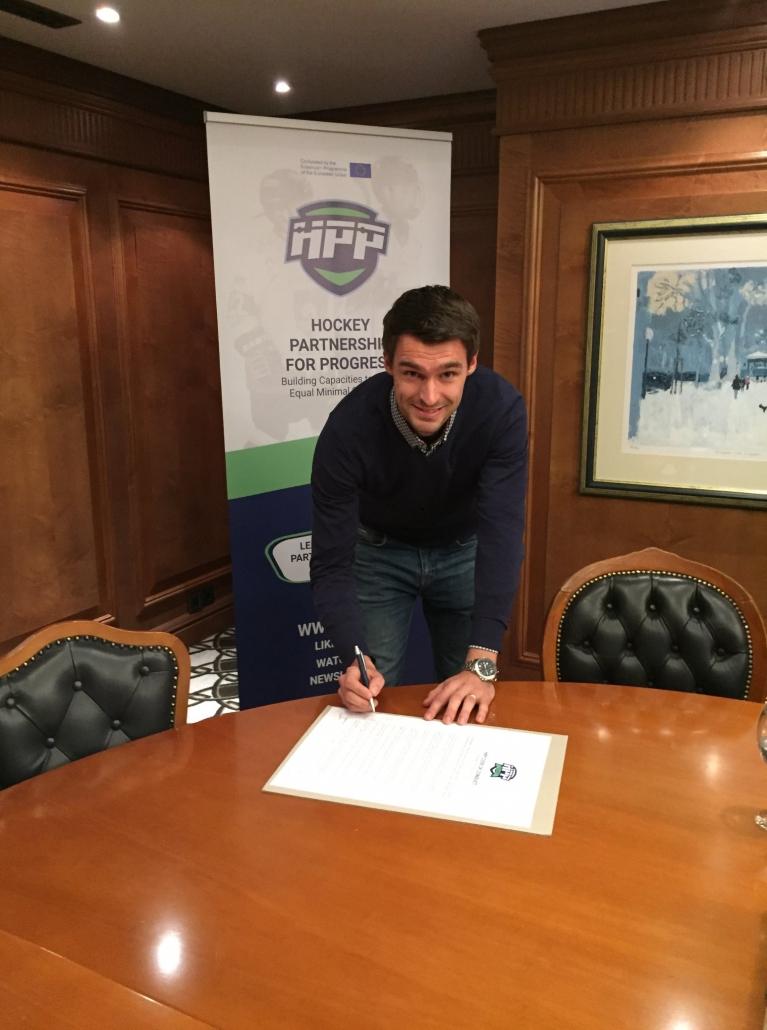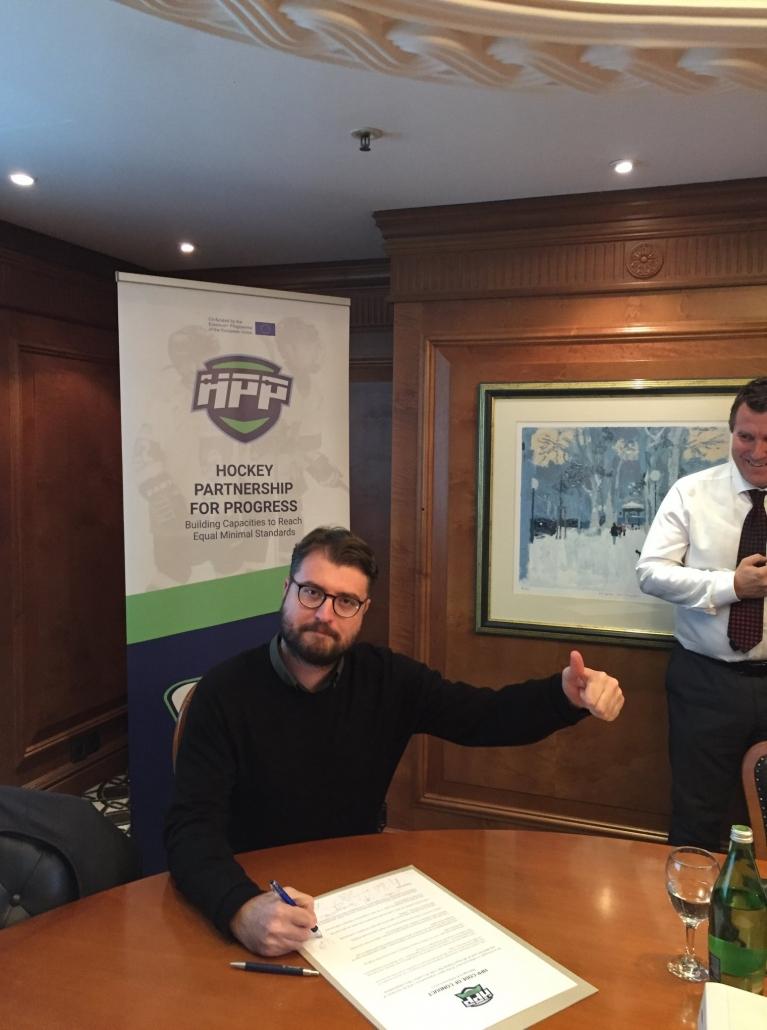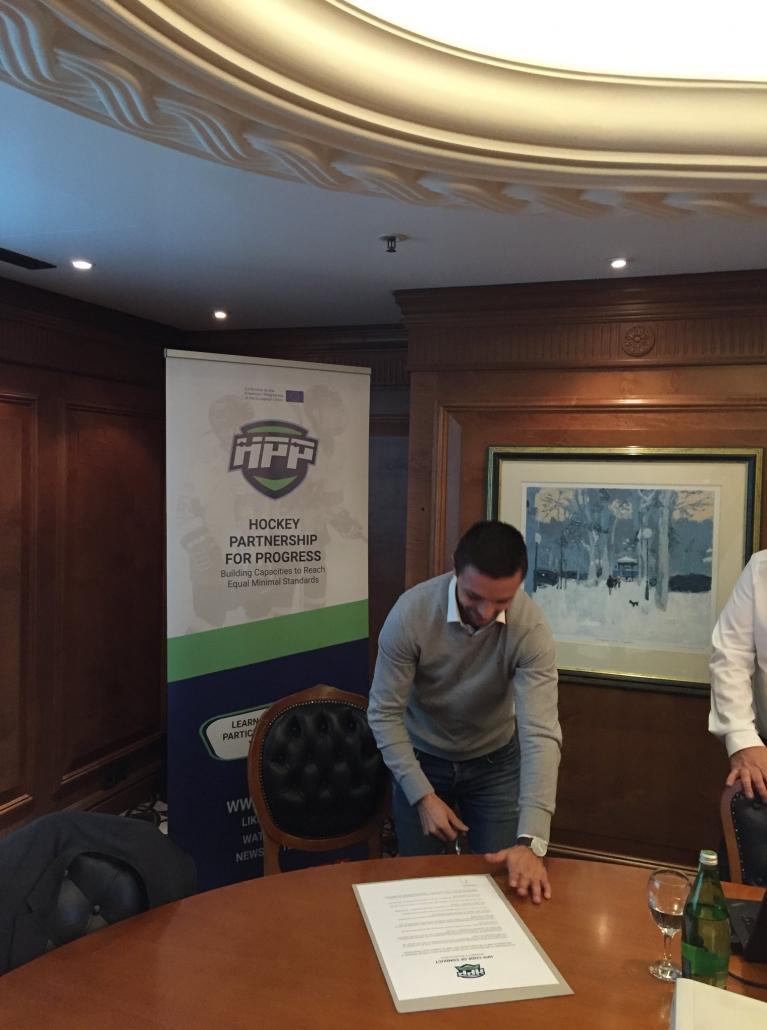Strategic Development in Sports Organizations Workshop
With the end of 2019 rapidly approaching, it was time for the Project’s and the last event of the year which took place in Zagreb, Croatia between 4. and 5. December 2019. The first part of the event, the Workshop on Strategic Development in Sports Organizations, has through series of theoretical and practical activities focused on improving the planning capacity of the Project Partners and Managers in Sport from other Sports Organizations who joined for the occasion. The second part of the meeting in Zagreb was organized as an internal Consortium Meeting focusing on Creation of Common Action Plan and the Review of the past activities, alignment, and future plans.
The Project’s goal is to help people involved in sport with their ambitions to change things for the better by equipping them with essential skills and knowledge through our FREE lectures and learning materials that can be accessed in our Knowledge Library.
We believe that only if we, all the people involved in sports, play our parts well we can develop an environment in which athletes and organizations will thrive and bring joy to thousands of sports enthusiasts worldwide for many years to come. Therefore, we invite you to check out the videos and presentations below and absorb as much knowledge as you can. You can also freely share the contents with your colleagues in sport.
You can also join our newsletter that will get you a summary of our events and links to the learning materials delivered right to your inbox.
Introduction to Strategic planning for Sports Organizations
T. Čater, School of Economics and Business, University of Ljubljana
The lecture introduced a theoretical framework with a couple of examples to help participants with the creation of a strategic plan in their sports organizations. In the presentation, the professor presented key steps to take and points to consider when developing it. During the course of the lecture, an unplanned debate emerged on how to convert the theory into practice, considering that the main objective of the project is to provide practical results among the Project Partners and other Organizations that had their representatives present at the event.
Watch the Video
Findings of HPP Benchmark Analysis & Conclusions
Building on the series of previous Project events and activities, including lectures from the Good Governance Seminar and evaluation process conducted through Interviews with Project Partners’ Representatives based on the SIGGS Self-Evaluation Tool (you can try it online here) and SWOT Analysis.
The aim of the analysis and public display of the results was to point out the identify and point out weaknesses and strengths of individual federations and pressing areas that require attention according to the good governance principles. Secondly, the public display and discussion of the analysis results served to steer the project participants in a direction to develop a Common Action Plan aiming to tackle one of the major challenges through collaborated and synchronized approach.
The conclusions of the analysis pointed out the following areas that the Project Partners scored low in the following areas:
Integrity (4/14 areas): Lack of Codes of Conduct, Conflict of Interest Management, Human Resources Procedures, Clear Responsibility for Match-Fixing
Autonomy (1/14 areas): Clear responsibility for Managing the Finances
Transparency (1/14 areas): Availability of Strategic Plan
Democracy, Participation, Inclusivity (2/11 areas): Practices of liaising with Athletes, Approaching gender equality issues
The results of the analysis will help steer the project in a direction that will help Project Partners address the critical areas and improve. While some of the areas will be addressed through individual Federations other, such as formulation of Codes of Conduct will be conducted during the course of the project.
The results of the SWOT analysis concluded that project partners’ development efforts are hurdled by two key challenges which should be further explored and evaluated for a potentical collaboritve approach: Lack of Infrastructure and Lack of Financing.
Check the Results Summary
Case Study: Approach to solving Infrastructure Challenge by IHF Slovenia and School of Business and Economics
IHF Slovenia & School of Economics and Business, University of Ljubljana
In the third part of the session, professor Čater introduced a practical approach that was recently used by the Ice Hockey Federation of Slovenia to tackle the Lack of infrastructure challenges in collaboration with students of the Sports Masters Program of the School of Business and Economics, University of Ljubljana. The approach included the analysis of the current state, analysis of micro and macro environments, comparison with neighboring countries, identification of socio-economic benefits of sports infrastructure development on a local and national level, empirical research among potential towns that might consider building a new ice rink, and final approach that could be used by the Ice Hockey Federation of Slovenia.
Watch the Video
Discussion Panel: Strategic Planning
D. Vukotić, Serbian Ice Hockey Association; F. Tozünler, Ice Hockey Federation of North Macedonia; A. Mrkva, Bosnian Ice Hockey Federation, Dr. G. Maier, Austrian Ice Hockey Federation; A. Nieminen, International Ice Hockey Federation, K. Švigir, International Ice Hockey Federation, moderated by R. Snoj, Slovenian Ice Hockey Federation
After the introduction, the discussion focused mainly on discussing strategic planning approach used by the Project Partners, exchanging experience, and knowledge-sharing between the participants.
Again, it was emphasized there are two major pressing issues that must not be overlooked – a problem with financing (finding and keeping sponsors, how to attract more fans) and the problem with infrastructure.
One of the panelists, Mr. Ferhat Tozünler, compared building strategy (and later executing it) to climbing:
Strategy is a climbing wall that takes you towards your goals. If you get stuck on your way, you will not quit, but you will find another way.
During the panel, Mr. A. Nieminen, an IIHF representative, shared how Finland faces the problem of writing a strategic plan and warned the panelists (and all of the participants) that it is important to know that things, in reality, will never follow the strategy, which requires the Federations to be able to react quickly and adjust to the changes.
Among the questions, raised in the debate, was also how to push things forward, how to develop a strategy and the sport itself with the lack of finances and motivation of those involved.
Among the topics discussed were also two important questions: Why do strategies fail and how to attract more people to follow the process of strategic development. Furthermore, it was also discussed how to monitor the process of strategic development.
Watch the Video
Strategic Hackathon
As one of the tools that can be used to build strategies and find solutions for specific problems by engaging a small group of people a Hackathon approach was introduced.
Upon presentation of the approach (see the presentation) the participants were randomly selected into 4 groups and presented with specific problems related to their involvement in sport:
- Improve/Build hockey Infrastructure in the region
- Attracting more fans and media to the IHL league
- Bringing former ice hockey players back to ice-hockey
- Organize the best hockey promotion/recruiting event
The groups were given a 1 hourr to complete the task following tasks and come up with a solution:
- Why this specific challenge needs our attention?
- Who will benefit if you solve it and why?
- What are the steps required to do it?
- What resources are required to do it?
- Create 10 mins presentation
All the 4 groups ended up presenting their solution drafts. While the presentations were far from perfect, the presented solutions were evaluated as a solid start on which more complete proposals can be built. Nevertheless, the Hackathon turned out to be a great success, connecting people from different environments, building stronger relations, and learning a new approach to solving specific problems. The latter is especially welcome due to the fact that Project Partners lack employees who would dedicate their full time to the work in sport and need new approaches to fuel their development efforts.
If you and people in your spor organization lack time to find a solution for a specific challenge, try using the Hackathon approch to quickly draft a solution on which you can build!
HPP Manager Code of Conduct Presentation & Signing
Matej Tušak, Faculty of Sports, University of Ljubljana
Drafting and developing a specific Code of Conduct specific for Managers and Administrators was completed through Introduction of the key elements and later coordinated through an online tool in which Project Partner representatives voted for sets of codes to be included, concluded in final version presentation and official signing by all of the involved. The Project Partners were also invited to introduce and integrate the Manager and Administrator Code of Conduct into their environments and communicate it to their clubs.
Do you have a Code of Conduct in place in your Sports Organization? If not, you can freely use our version to discuss and build your own!
Meeting: Developing Common Action Plan, defining approach and next steps
Building on the analysis results the Project Partners agreed that the challenge of the Infrastructure could and should be the approach through a common action plan.
A great debate emerged between the participants, where everyone shared their experience with the process of solving the lack of infrastructure problem and the process of convincing the City Authorities to financially support the project.
The conclusion was that the Federations should work together to develop a common approach based on three pillars:
- Creating pressure on City Authorities through the growth of IHL league appeal, increasing number of participating children, and IHL League officials presenting the strong vision of ice hockey development in the region
- Providing an out-of-the-box solution for ice-rinks, including the financial plan
- Providing a coherent approach to filling out the Ice rink with programs for a wider public and building ice sport culture in the city where a new ice rink could be potentially built.
The lead of developing the required materials and final approach that would support the Project Partners’ in their efforts was assumed by K. Švigir from the IIHF and HPP Project Manager Rok Snoj.




